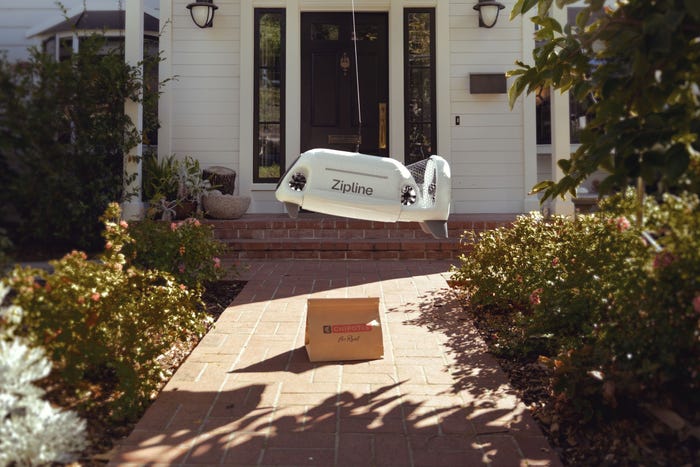Drone Delivery Takes Flight: Chipotle and GoTo Foods Launch Programs

UPDATE: Drone delivery is officially surging as major brands like Chipotle and GoTo Foods launch groundbreaking pilot programs across Texas, promising faster and more convenient meal deliveries. As of August 2023, Chipotle has partnered with Zipline to deliver burritos and bowls right to customers’ homes. This development marks a significant shift in how consumers will receive their grocery and meal orders.
The rapid rollout of these programs is fueled by recent regulatory changes, including a pivotal executive order issued in June 2023. This order has dramatically eased restrictions, allowing companies to expand drone operations beyond visual line of sight, a major hurdle that has previously stymied the industry.
Why This Matters NOW: With the advent of drone delivery, customers can expect to receive their dinner ingredients as quickly as ordering through popular apps like Uber Eats or Grubhub. The implications are vast: shorter wait times, lower labor costs, and enhanced customer satisfaction are now within reach for retailers.
The Texas market is currently the center of innovation, with cities like Frisco, Fort Worth, and Plano serving as testing grounds for this emerging technology. “One restaurant out of five or six may be able to have the same delivery radius that we would typically experience with a human courier,” stated Chipotle’s Chief Technology Officer Curt Garner.
The competition is fierce, with multiple companies including Wing, Flytrex, and DroneUp racing to dominate the commercial drone landscape. Their drone designs vary from hobbyist models with four propellers to more sophisticated unmanned aerial vehicles resembling miniature passenger planes.
Despite the excitement, safety concerns loom large. A survey conducted in 2024 revealed that 70% of respondents expressed worries about potential disturbances and safety issues related to drones in their neighborhoods. L.R. Fox, CEO of WhiteFox Defense Technologies, emphasized, “If somebody launched a drone and had a bomb on it, there’s very little anybody can do to stop it.”
Regulatory solutions are still being worked on, as local authorities currently face limitations in controlling drone operations. Proposed legislation aims to empower state and local police with more authority over drone incidents, but these measures have yet to be enacted.
As these pilot programs progress, the industry is optimistic about the future of drone delivery. “Hopefully, what we see in 2026 is that the market will open up,” said Harrison Shih, head of the DoorDash Drone Program. The potential for drone deliveries to become mainstream depends not only on technological advancements but also on overcoming public skepticism and regulatory barriers.
In summary, drone delivery is on the cusp of becoming a staple in our daily lives, transforming how we receive meals and groceries. As these trials continue to gain traction, the next frontier of convenience shopping may very well hover right above our doorsteps. Stay tuned for more updates as this exciting development unfolds!






